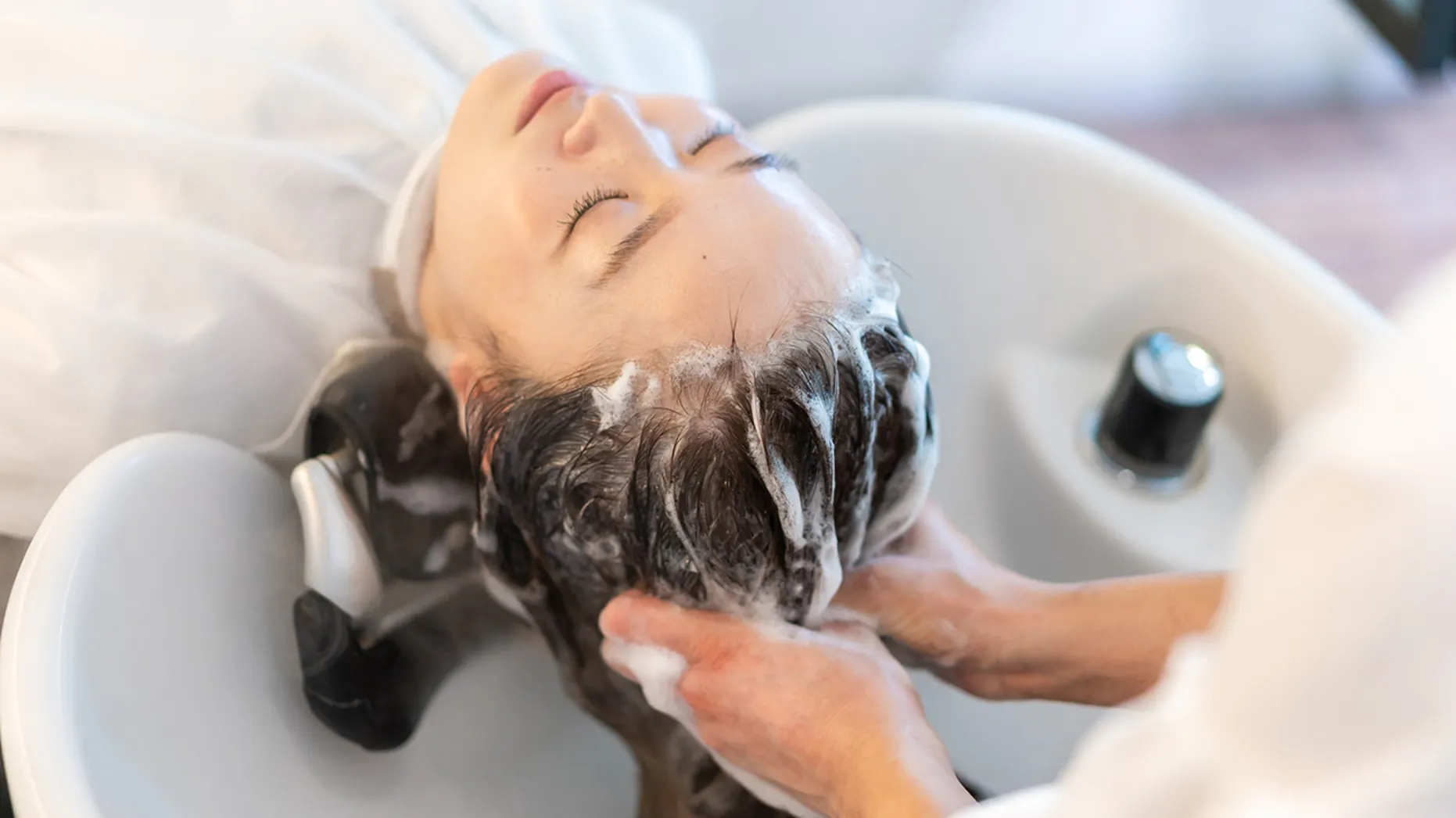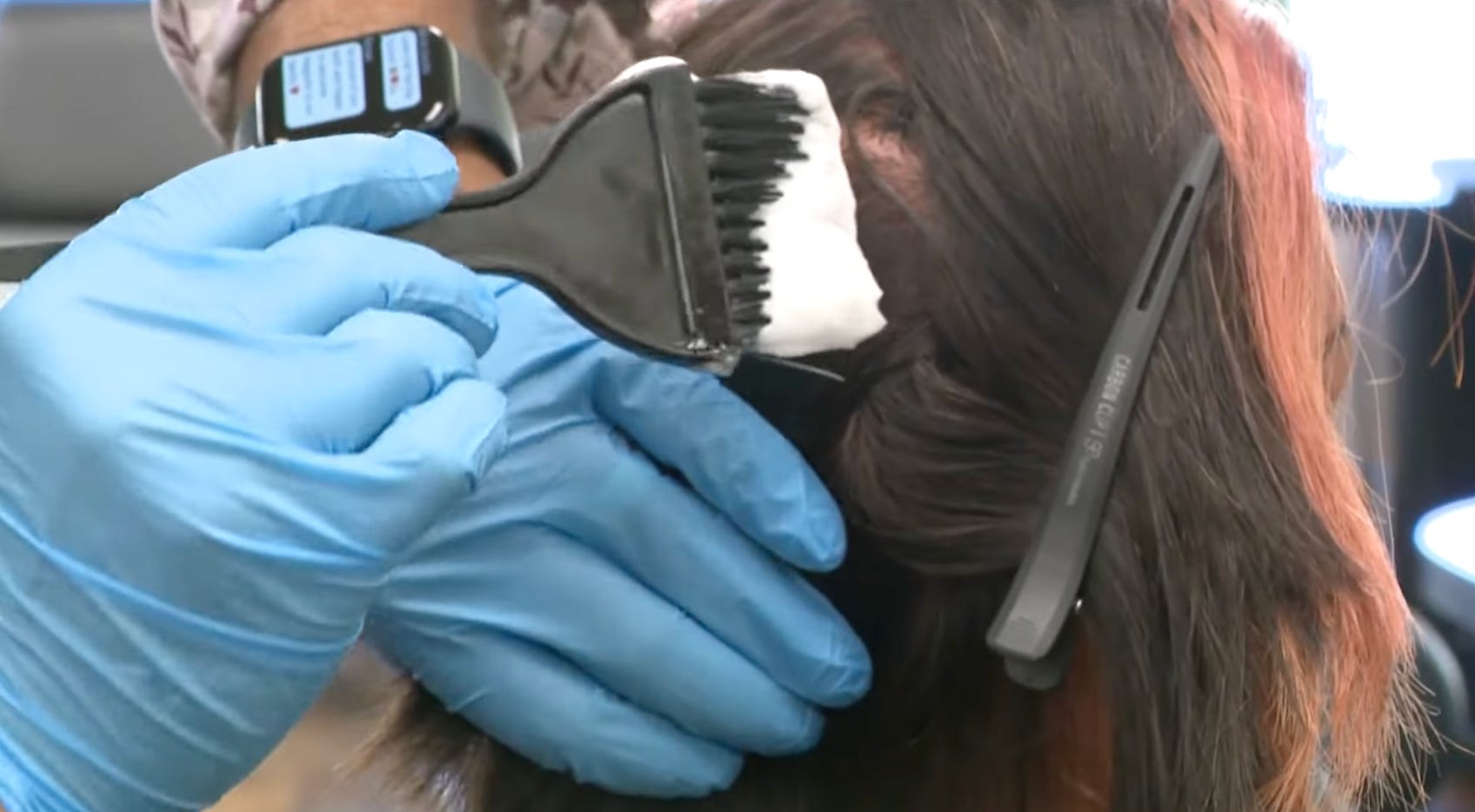The Food and Drug Administration (FDA) has proposed banning formaldehyde as an ingredient in hair relaxers, marking a significant move to address potential health risks associated with these products, particularly for Black women who frequently use them.
The proposed rule targets hair-smoothing and hair-straightening products, commonly known as relaxers.
Currently, the FDA advises against using hair-straightening products containing formaldehyde and similar substances due to their potential health impacts, according to an agency fact sheet.
Formaldehyde is a colorless, flammable gas used in various household items, including medicines and cosmetics.
It is highly toxic and repeated exposure can irritate the eyes, skin, lungs, and throat.
Moreover, formaldehyde exposure has been linked to certain cancers such as myeloid leukemia, as reported by the National Cancer Institute.
Even products not directly listing formaldehyde as an ingredient may contain substances like methylene glycol, which can release formaldehyde when heated, such as in hair-straightening treatments.
Formalin, a solution of formaldehyde in water, is also present in some soaps, shampoos, lotions, and cleaning products.
Under current regulations, the FDA does not require pre-market approval for cosmetic products and their ingredients, except for color additives.
Although companies are legally responsible for ensuring the safety of their products, they are not mandated to share safety data with the FDA.
In recent years, research has highlighted potential dangers associated with chemical hair relaxers.

A study published by the National Institutes of Health indicated that women using these products more than four times annually faced double the risk of developing uterine cancer compared to non-users.
Although the study did not specify brands or ingredients, it underscored concerns about formaldehyde, parabens, and other chemicals found in such products.
A more recent study from Boston University’s Black Women’s Health Study, which monitors 59,000 Black women, found that long-term use of chemical hair straighteners among postmenopausal women increased the risk of uterine cancer.
Lead researcher Kimberly Bertrand emphasized the need for stricter regulation and safer alternatives, noting the lack of transparency in labeling for endocrine disruptors like phthalates and parabens.
Bertrand explained that these chemicals, absorbed through the scalp during product application, can interfere with the body’s hormone system, potentially contributing to health issues such as early puberty, fibroid tumors, and infertility.
Furthermore, a study in the American Journal of Epidemiology linked current and former use of chemical hair straighteners to reduced fertility in women.
Legal actions have followed, with Black women filing lawsuits against cosmetic giants like Revlon and L’Oréal, alleging that their hair-straightening products led to cancer and other health complications, including infertility.
The FDA’s proposed ban on formaldehyde in hair relaxers follows advocacy efforts, including a March open letter from Representatives Ayanna Pressley and Shontel Brown urging the FDA to investigate carcinogenic risks associated with these products
The letter highlighted how societal pressures, rooted in anti-Black hair bias, often drive Black women to use such products.
In addition to regulatory measures like the FDA’s proposed ban, advocates such as Pressley have championed legislation like the CROWN Act, aimed at preventing discrimination based on hair texture in workplaces and schools.
Over 20 states, including Texas, have passed similar legislation since its initial passage in the U.S. House in March 2022, signaling growing support for addressing systemic biases against natural Black hair.
